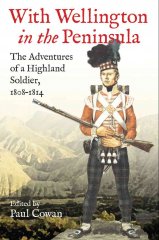Few Scots ever admitted to listening to German propaganda radio broadcasts during the Second World War. A fewer still realized that the original Lord Haw Haw was a disgraced former officer from the Seaforth Highlanders.
Norman Baillie-Stewart was jailed in the Tower of London after being caught spying for the Germans in the 1930s and after his release ended up in Germany broadcasting to Britain in the opening months of the Second World War. His exaggerated upper-class accent soon led to him being dubbed Lord Haw Haw. But he lasted only a short time before being replaced by his under-study, American-born William Joyce, who adopted the Lord Haw Haw persona. Joyce was executed after the war, Baillie-Stewart was jailed for five years and after his release moved to Dublin where he died in 1968.
The Nazis even set up its own radio station which attempted to cash in on a rise in Scottish nationalism in the 1930s. The message of Radio Caledonia was basically, “What are the Scots doing fighting England’s war – the Germans are our friends.” The station claimed to be broadcasting from Scotland but was actually based in Charlottenburg in Germany. It was basically a one-man band. The broadcasts were written and performed by a former vacuum cleaner salesman from Alness called Donald Grant.
Grant hated Jews and bought into the British fascist movement in the 1930s while living in London. He wrote to the German Foreign Propaganda department in 1938 looking for a Nazi pen pal and later that year played host to a German woman. The following year he went to Germany and was still there when war was declared. He was briefly interned and after his release, having demonstrated his fascist credentials, he was recruited by the German radio propaganda department. He was given a new identity, Donald Palmer and paid 600 marks a month.
Radio Caledonia made its first short-wave radio broadcast in June 1940. There are no recordings of what Grant had to say and no-one in Scotland after the war recalled ever listening to his 8 p.m. broadcasts. But in 2015 Durham University historian Jo Fox came across transcripts of the 15-minute broadcasts in the archives of the BBC Monitoring Service. The content was anti-Semitic and anti-capitalist.
The broadcast was basically a one-man effort, though between June and November 1940 he was assisted by a mysterious Sergeant McDonald. He railed against Scotland’s exploitation by England and bemoaned the concentration of modern light industry in the Home Counties at the expense of Scots workers. He argued they faced either unemployment or moving to England for work. Grant advocated an independent Scottish Socialist Republic.
In August 1942, Grant finally admitted to himself and his bosses that he was wasting his time. The broadcasts were ended and Grant focused on reading British newspapers looking for news items to be used on two other English-language Nazi propaganda stations – William Joyce’s Workers Challenge and the New British Broadcasting Station. Grant later told his British interrogators that he only wrote bulletin material for the two stations “most unwillingly” because he did not agree with the line they were taking.
The British had starting taking an interest in Grant after a letter from him arrived in Alness from Germany, via the Red Cross, in 1941. A police constable made inquiries around Alness about Grant but could only establish he was an ardent Nazi. In 1944 an escaped British Prisoner of War identified Grant as one of several renegade Britons he’d worked with at the New British Broadcasting Station.
Grant avoided arrest in Germany as a traitor for more than a year before surrendering to the British authorities. They decided he was a pathetic and misguided man. He was jailed at the Old Bailey for six months in February 1947 for assisting the enemy. Justice Atkinson said he accepted that Grant's primary intent was to promote peace.
After his release returned to Alness to help his mother run a shop. But local people attacked the shop and Grant fled to London. He then emigrated to apartheid South Africa but is believed to have returned to London, where he died in the mid-1980s.
The Germans also operated a propaganda radio station aimed at the Welsh – Welsh National Radio.
Other articles you might be interested in -
*Here's one that combines Canadian and Scottish themes * Those who enjoyed reading about the Royal Scots’ Armistice Day battle with the Bolsheviks in 1918 might be interested in the same fight as seen from a Canadian viewpoint - Canada’s Winter War
* Read about the blunder that made Canada an easy target for invasion from the United States - Undefended Border
* Serious questionmarks over the official version of one the British Army's most dearly held legends - The Real Mackay?
*Read about the veterans of Wellington's Army lured into misery in the Canadian Wilderness in a new article called Pension Misery
*A sergeant steals the battalion payroll. It’s called Temptation
*Read about how the most Highland of the Highland regiments during the Second World War fared in the Canadian Rockies - Drug Store Commandos.
*January 2016 marked the centenary of Winston Churchill taking command of 6th Royal Scots Fusiliers on the Western Front. How did the man who sacked so many British generals during the Second World War make out in his own most senior battlefield command? Find out by having a look at Churchill in the Trenches .
*Just weeks before the outbreak of the First World War one of Britain's most bitter enemies walked free from a Canadian jail - Dynamite Dillon
*Click to read - - Victoria's Royal Canadians - about one of the more unusual of the British regiments.
*Read an article about the Royal Scots and their desperate fight against the Bolsheviks on Armistice Day 1918 - Forgotten War A second article, looks at the same battle but through a Canadian lens .
*This is one of the most popular articles on the site - Scotland’s Forgotten Regiments. Guess what it's about.
*The 70th anniversary of one of the British Army’s most notorious massacres of civilians is coming up. See Batang Kali Revisited




